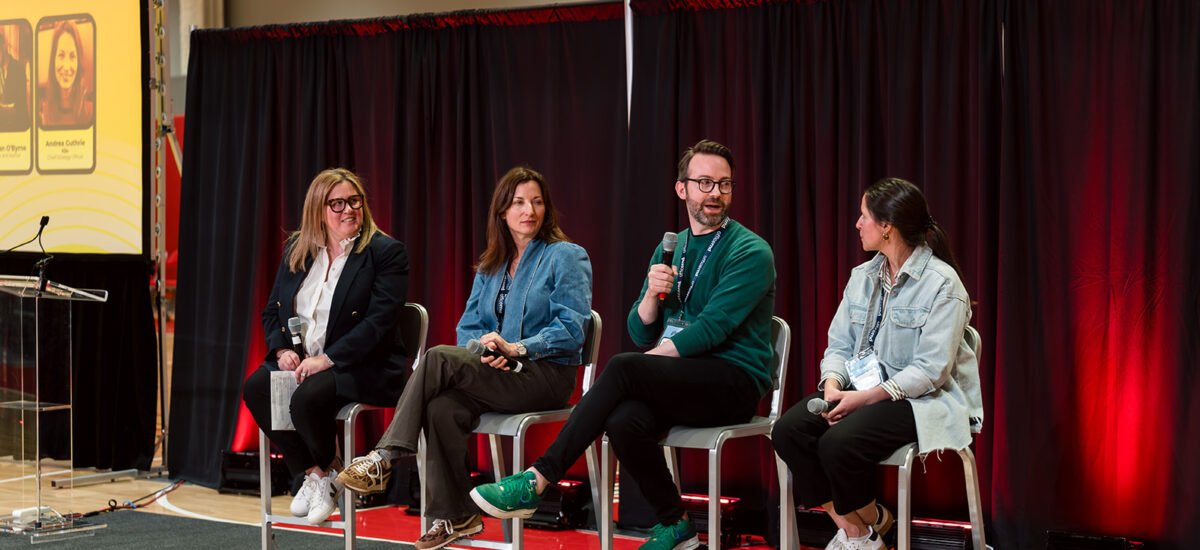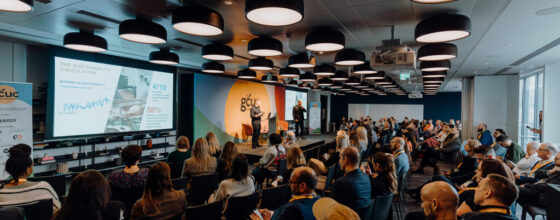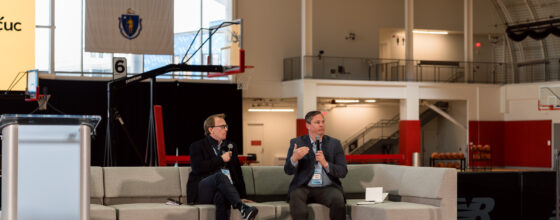Operational excellence: data driven analytics and the all important customer journey

This article summarizes key insights from a discussion at GCUC Boston featuring industry leaders who shared strategies for using data analytics to improve coworking operations and member experiences. The session, “Operational excellence: data driven analytics and the all important customer journey” explored how coworking spaces can utilize data to tailor services, optimize resources, and create environments that foster productivity and collaboration.
Featured Speakers
- Sarah Travers – CEO of Workbar, moderating the discussion
- Carly Bedini – VP of Operations at IQ Offices
- Jonathan O’Byrne – Author of “After Coworking”
- Andrea Guthrie – Chief Strategy Officer at Kiln
The Data Journey: From Gut Feeling to Strategic Decisions
Andrea Guthrie from Kiln highlighted the evolution of data collection in the coworking industry. What once relied primarily on intuition has transformed into sophisticated systems leveraging AI-powered lead processing and comprehensive usage tracking. By implementing technologies like gated Wi-Fi and AI agents, operators can now develop deeper understandings of member behaviors and preferences.
“The industry has matured significantly in how we collect and use data,” Guthrie explained during the panel. “At Kiln, we’ve moved from basic occupancy metrics to understanding the full member journey through our spaces.”
The Human Touch Remains Paramount
Despite technological advances, all panelists emphasized that technology cannot replace human relationships. Carly Bedini from IQ Offices stressed that while data provides crucial insights, genuine connections ultimately drive member satisfaction.
“Our front desk staff and community managers often have the most valuable insights,” Bedini noted. “They’re interacting with members daily and can identify needs before they show up in any dashboard.”
Sarah Travers, drawing on her experience leading Workbar, reinforced this point by sharing how combining quantitative data with qualitative feedback from team members creates the most complete picture of member needs.
Practical Tips for Data-Driven Coworking
Jonathan O’Byrne, bringing perspective from his research for “After Coworking,” shared several practical strategies for collecting meaningful data:
- Reviewing access logs to understand peak usage times
- Analyzing CCTV footage to identify space utilization patterns
- Implementing occupancy sensors in meeting rooms and common areas
- Developing systematic ways to capture feedback from front-line staff
“The most successful operators are those who can translate raw data into actionable improvements,” O’Byrne explained. “It’s not about collecting data for its own sake, but about using it to enhance the member experience.”
The Game-Changing Role of Revenue Operations
A key recommendation from the panel was hiring a dedicated revenue operations professional who can translate complex data into clear, actionable strategies. This role serves as a bridge between analytical insights and practical business decisions.
Andrea Guthrie elaborated, “Having someone focused specifically on revenue operations has transformed how we approach everything from pricing to marketing to space design at Kiln. They help us see the connections between different data points.”
The Future of Coworking: Intelligent, Insights-Driven Spaces
As the industry continues to mature, the panelists agreed that successful operators will be those who balance cutting-edge technology with authentic human experiences. Carly Bedini emphasized that data isn’t just about numbers—it’s about understanding and serving members better.
The session concluded with all speakers affirming that in today’s competitive coworking landscape, smart data collection isn’t just an option—it’s a competitive necessity. However, the ultimate goal remains creating environments where people feel productive, connected, and supported.
“The spaces that will thrive are those that use data to enhance human connections, not replace them,” Sarah Travers summarized, capturing the essence of the discussion.
Looking for more GCUC? Catch us in the UK later this year. Tickets and program details can be found at uk.gcuc.co








